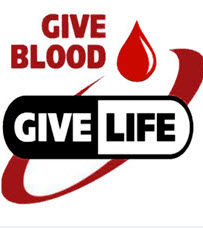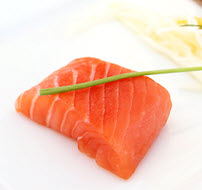Compliments of :
RoseanneMacDonald
Entrepreneur, EliteTransitions
Phone:(807)355-3509
Seniors Tip: How Does Age Affect Blood Donation? – Part 2
Joke or Quote of the Month:Pay Close Attention
Heart Healthy Recipe:Salmon Sliders on Garlic Spinach
Did You Know? The Lost Idea of Joy
911-Grandparents
 When my three-year-old granddaughter caught a slight case of pneumonia, she needed to be on oxygen. This meant a five-day hospital stay. We knew her illness wasn’t too serious; a round of antibiotics and she would be fine. It doesn’t sound like too big a deal but, immediately, the logistics became a challenge.
When my three-year-old granddaughter caught a slight case of pneumonia, she needed to be on oxygen. This meant a five-day hospital stay. We knew her illness wasn’t too serious; a round of antibiotics and she would be fine. It doesn’t sound like too big a deal but, immediately, the logistics became a challenge.
Her mom was at the hospital with her, her dad was at work and her brother was with the nanny. But later in the afternoon, it would be time for the nanny to leave and dad needed to bring mom the items she would need to stay in the hospital overnight. He also wanted to visit with his little girl.
This was the signal for us, the grandparents, to step up to the plate. We relieved the nanny and cared for our young grandson. During those five days, we filled in the gaps to ensure everyone was cared for.
Those few days caused us to recall a much more serious issue that our friends handled. Their grandson, then eight years old, was diagnosed with cancer. His sister was six and his brother one. Their mother told me her parents were lifesavers when it came to caring for one-year-old Gabe. Colleen, the mother, says when one child is sick, the other kids get put on the back burner. She recommends parents tell the other kids that if it were them who were sick, they would get exactly the same special care.
The daily routine of the family consisted of husband Todd going to work, then going straight to the hospital and spending the night with their son. Colleen would take six-year-old Abby to school and Gabe to his grandparents, so she could spend the day at the hospital.
Without the help of the grandparents, either the baby would spend many long hours at the hospital with mom or the parents would not be able to give their sick child the care and attention he needed.
There are many times when it’s handy to have grandparents to fill in when life gets bumpy. When my daughter’s father-in-law died in Ontario, she could join her husband and attend the funeral because we, the grandparents, took over with their toddlers.
If a child is sick and can’t go to daycare, often a grandparent can save the day. In the chaos of day-to-day living, grandparents can have an important role by giving the parents a break. Often, simply a chance to go out for a meal without the kids is a great benefit to busy parents.
When we notice that life has been hectic (and that would be always, actually) and that our children have not had a chance to spend some time together, we will suggest that a date night is in order. Not surprisingly, they never disagree. Grandparents are perfectly suited for the role of emergency care. The children know them and are comfortable with them. The grandparents have a good sense of how the children are being raised, so when they care for the kids, it’s not a disruption to the usual schedule. And the grandparents are madly in love with these little ones.
When the kids are babies, toddlers and preschoolers, it works best when grandparents follow the schedule set up by the parents. Kids at this age thrive on ritual and get disconcerted when the schedule changes.
As the kids get older, grandparents can make some changes that are special. These kids are now old enough to appreciate that Grandma will read extra stories or Grandpa will play train with them for hours on end, if they want.
I am always pleased when I can ease the life of my children as they take on the challenging task of raising my grandchildren.
Article by Kathy Lynn, Reprinted with Permission by Senior Living Magazine, www.seniorlivingmag.com
Heart Healthy Recipe: Salmon Sliders on Garlic Spinach
Ingredients-1 can (213 g) wild sockeye salmon, drained, 1 green onion, chopped, 2 tbsp (25 mL) chopped fresh parsley, 1/2 tsp (2 mL) dried dill, Pinch black pepper, 1 egg white, 6 cups (1.5 L) baby spinach, 2 cloves garlic, minced, Pinch hot pepper flakes.
Directions- In a bowl, using a fork, mash salmon. Stir in green onion, parsley, dill, pepper and egg white until mixture sticks together. Form into 4 small patties; set aside. Spray large nonstick skillet with cooking spray and place over medium heat. Add spinach, garlic, hot pepper flakes and 1 tbsp (15 mL) of water. Cook, stirring for 3 minutes or until spinach is wilted. Remove to 2 plates. Spray skillet with cooking spray and return skillet to medium heat. Cook salmon patties turning once for about 3 minutes per side or until golden and firm. Place 2 patties on each serving of spinach and serve.
Nutritional Information Per Serving (2 patties with spinach)-Calories 182, Protein 25 g, Total Fat 7 g, Saturated Fat 1 g, Cholesterol 68 mg, Carbohydrates 5 g, Fibre 2 g, Sodium 454 mg, Potassium 857 mg
Recipe developed by Emily Richards, PH Ec. ©Heart and Stroke Foundation 2013. Reprinted with Permission from The Heart and Stroke Foundation.
Seniors Tip: How Does Age Affect Blood Donation? – Part 2
 Q – I heard there is an age cut-off for donating blood – is this true? What are the most common reasons a senior donor might be deferred from donating blood? And what are the most common reasons a senior might need blood products to stay healthy?
Q – I heard there is an age cut-off for donating blood – is this true? What are the most common reasons a senior donor might be deferred from donating blood? And what are the most common reasons a senior might need blood products to stay healthy?
A – If you read the last issue of “Maturity Matters,” you will have seen our answer to the first question. In this issue, we’ll tackle the second question and then we’ll save the third for next month’s issue.
There are many reasons why a senior blood donor might be deferred from donating blood and many of these reasons may have little to do with age per se. Common temporary deferrals include travel restrictions and low haemoglobin. Because malaria is transmissible through blood, Canadian Blood Services temporarily defers donors who have travelled to areas considered to be malaria-risk zones.
These areas unfortunately include many of the world’s top travel destinations, sometimes making it difficult for avid travelers to be able to donate on a regular basis. To reduce the impact of this deferral, Canadian Blood Services encourages donors to give before travelling, so you’re not deferred at the next appointment following your exotic vacation.
Low haemoglobin (or iron) also causes donor deferrals for many donors. If the low haemoglobin is due to dietary issues, following the Canada Food Guide and taking a daily vitamin pill may be helpful in preventing this deferral.
Your annual or periodic check-up with your doctor is a great opportunity to discuss your diet, and whether for example, as a regular blood donor, a daily oral iron supplement may be a healthy dietary choice to consider.
An unfortunate and fairly common reason for deferral of senior donors is cancer. For the safety of both donors and recipients, those who are diagnosed with cancer at any time in their life are permanently deferred from donating blood.
For those who have successfully fought cancer and are still eager to be involved with Canadian Blood Services, they’re encouraged to volunteer with the organization instead, working in the refreshment area of the clinic or promoting the cause within their community.
Dr. Mark Bigham is a Medical Consultant for both Canadian Blood Services and Fraser Health Authority in British Columbia, Reprinted by Request.
Did you know? The Lost Idea of Joy
 I’ve been thinking about joy lately. Not happiness, pleasure or contentment but joy as a young child or animal knows it. We have lost the idea of joy in the last century.
I’ve been thinking about joy lately. Not happiness, pleasure or contentment but joy as a young child or animal knows it. We have lost the idea of joy in the last century.
Sigmund Freud and the behavioural psychologists who followed banished joy or pleasure by deciding that human behaviour is determined by instinctive drives and that pleasure or any other positive sensation is merely the absence of pain or hunger.
Ironically, in developed western societies we have dedicated ourselves to the pursuit of happiness, which seems to be dependent on circumstances or our state of mind relative to what we think life should be at a given moment.
Joy, by contrast, is a free gift hinging only on the miracle of being alive. Some of us can remember waking up as young children, almost overwhelmed with astonishment on a summer morning with the realization that, “I’m here!”
Joy is an unconditional acceptance of reality and perhaps for mature humans an unconscious awareness that life is fleeting and youth and health even more so.
One of the possible gifts of our older years, once we have been freed of striving for happiness as defined by our society, is the opportunity to get over being so grownup. My wife and I recently had an old fashioned outdoor masonry oven built at our cottage and held a spontaneous pizza making party to try it out for the first time. We invited a few neighbours who were handy along with a couple of their visiting guests. When the first pizza came out every one of these sexagenarians became ten years old again with excitement. One guest, so eager to get a turn making a pizza, jumped up and down, full wine glass in hand, inadvertently christening our new cedar deck. Once full of pizza, everyone adjourned to a badminton game over the septic bed.
Except for the grey hair and slightly slower reflexes, it could have been a schoolyard at recess. Oh the joy of forgetting yourself and simply enjoying the miracle of being alive!
By Alan Atkins, CPCA
Joke or Quote of the Month: Pay Close Attention
“The past is your lesson. The present is your gift. The future is your motivation.”
Author Deeplifequotes.com
